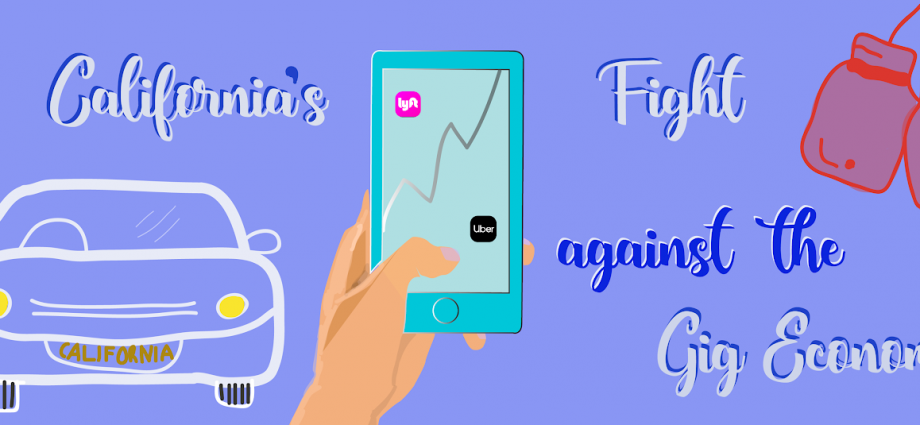DoorDash: Dominant or Doomed?
As one of the most anticipated IPO’s of the year, DoorDash is set to go public in an exceptionally volatile market. The online food delivery platform has grown into a $12.6 billion dollar company in just seven years, with a dramatic increase from its $1.4 billion valuation in 2018. However, the success of its IPO stands in question due to changing investor sentiments concerning current market trends and recent struggles among competitors.Continue Reading
Ways to Manage Your Money Emotions
We all know that our relationships with family, friends, and coworkers are important…but when was the last time you thought about where you stand in terms of your relationship with money?Continue Reading
Virgin Galactic (NYSE: SPCE) and the Potentials of Space Tourism
With the magnification in intensity of climate change and global warming, many have wondered if the next step for humanity is between the stars. Some advocates of this proposition include Elon Musk, founder of Tesla and SpaceX, who is adamant on establishing a colony on Mars, former theoretical physicist Stephen Hawking, who ominously proclaimed that the human race would become extinct if we didn’t colonize another planet within 100 years, and President Trump, who recently supported a $25 billion budget for NASA and agreed the “goal is Mars.”Continue Reading
Chocolate’s Bitter Impacts on the Ivory Coast
The cacao bean, once thought a divine food by the Aztecs that imparted wisdom, is now considered by its farmers the curse of “brown gold.” The curse itself is easy to understand: manufacturers like Hershey’s and Nestlé must sell cheap chocolate to make a profit, and where else to cut costs but at the very bottom of this food chain? There, we find the cacao farmers of the Ivory Coast. These impoverished Ivorian farmers supply 40% of the world’s total supply of cacao beans alone. Despite playing such a dominant role in the global chocolate industry, the Ivory Coast benefits little from its position and does not have the leverage required to raise the prices of cacao exports to support its workers.Continue Reading
Trump’s 2017 Tax Cuts: Economic Rocket Fuel or Inequality Perpetuated?
Tax cuts are generally a very popular policy. As then Speaker of the House Paul Ryan and other proponents of the 2017 Tax Cuts and Jobs Act argued, who doesn’t want their government to “giv[e] the people their money back”? President Donald Trump went even further, claiming that the “…huge tax cut will be rocket fuel for [the] economy” by creating new investment, raising workers’ wages and bonuses, and increasing growth. Continue Reading
Credit Card Rewards: A Zero-Sum Game?
The credit card business has since been recovering since the Great Recession when banks drastically cut consumer lending as they scrambled to reduce risky loans. The number of people with credit cards has since increased, from 152 million in 2010 to 176 million in 2017. At the same time, the number of credit card accounts in the U.S increased from 386 million to 455 million in 2017. Alongside a modest increase in the average number of cards each person holds, more people are getting a credit card for the first time.Continue Reading
Jeff Bezos Earth Fund: What to Expect in the Upcoming Years
On February 17th 2020, the richest man alive announced that he will donate about 8% of his fortune to fighting climate change. Jeff Bezos, the founder and one of the current shareholders of Amazon, made this announcement through his Instagram account saying that he will donate 10 billion USD to fund “scientists, activists, NGOs — any effort that offers a real possibility to help preserve and protect the natural world.” After seeing that post, many people had the same question in their mind: Where exactly will this money go?Continue Reading
California’s Fight Against the Gig Economy
Graphic Designed by Katharina Giebel BRB Bottomline: Changes in technology and business models have created the opportunity for millions of people to participate in what is now deemed the gig economy. Companies such as Uber, Lyft, DoorDash, and Rover are leading the forefront of this new economy by empowering workersContinue Reading
Rideshare vs. Carshare: GigCar Dives into the Fray
If you are someone who even just occasionally uses Rideshare companies like Uber and Lyft, then you’ve probably noticed how expensive these services are starting to become, even for short trips and with options like “Lyft shared” or “Uber Pool.” Here’s an estimate for the Uber and Lyft pricing for an actual trip I recently made, for around 2 miles worth of total travel. Continue Reading
Street Papers: The Importance of Newspaper Vendors in an Age of Digital Journalism
If you’re not from a large city, the following sight might be unfamiliar to you: a vendor on a busy street with a stack of newspapers, offering you an issue in exchange for a dollar or two. If you are in Berkeley, the title of that paper will often turn out to be the Street Spirit — the city’s own street paper.Continue Reading

